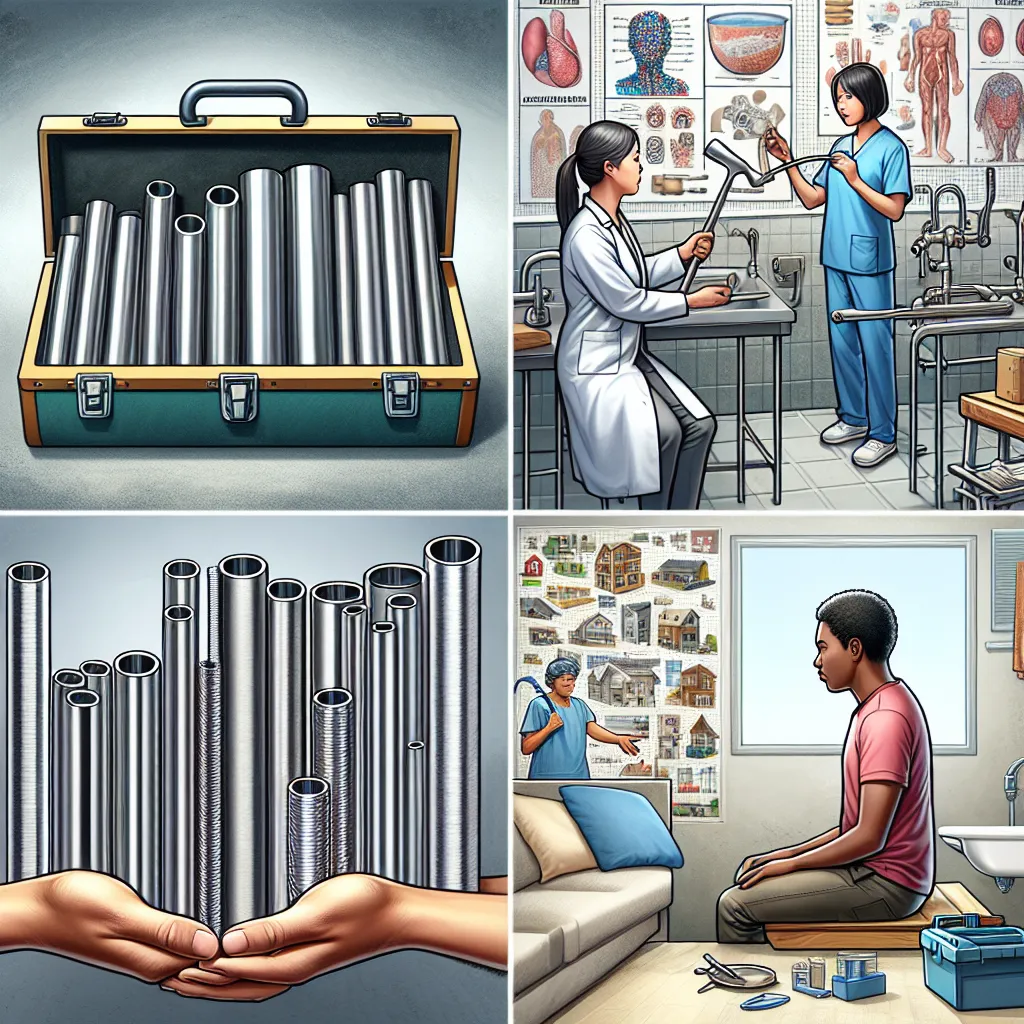Exploring the Versatility of Stainless Steel Tubes
Exploring the Versatility of Stainless Steel Tubes
Stainless steel tubes are a vital component in various industries due to their exceptional properties and versatility. These tubes, made from stainless steel alloys, are known for their strength, durability, corrosion resistance, and aesthetic appeal. With their wide range of applications, stainless steel tubes have become an integral part of modern engineering and construction.
Introduction to Stainless Steel Tubes
Stainless steel tubes are hollow cylindrical structures manufactured from stainless steel alloys. These alloys primarily consist of iron, chromium, and nickel, along with other elements, which provide the tube with its unique characteristics.
One of the key advantages of stainless steel tubes is their exceptional resistance to corrosion. This resistance is a result of the chromium content in the alloy, which forms a passive oxide layer on the surface, protecting it from chemical reactions. Stainless steel tubes can withstand harsh environmental conditions, making them suitable for a wide range of applications.
Applications of Stainless Steel Tubes
1. Architecture and Construction: Stainless steel tubes are extensively used in the construction industry. They are commonly employed in structural applications, such as building frames, handrails, and support beams. Stainless steel tubes can also be seen in various architectural designs, providing a sleek and modern appearance.
2. Automotive Industry: Stainless steel tubes play a crucial role in the automotive sector. They are used in the manufacturing of exhaust systems, fuel lines, and hydraulic systems. Stainless steel’s resistance to high temperatures and corrosion make it an ideal material for these applications, ensuring durability and longevity.
3. Oil and Gas Industry: The oil and gas industry relies on stainless steel tubes for transporting fluids and gases in harsh environments. These tubes are resistant to corrosion caused by substances such as hydrogen sulfide, making them an excellent choice for offshore and onshore drilling operations.
4. Food and Beverage Industry: Stainless steel tubes are widely used in the food and beverage industry due to their hygienic properties. They are employed in the production, processing, and transportation of food and beverages. Stainless steel’s resistance to corrosion and ease of cleaning make it a preferred material for maintaining high sanitation standards.
5. Medical and Pharmaceutical Industry: Stainless steel tubes find extensive use in medical and pharmaceutical applications. They are used in the manufacturing of surgical instruments, medical implants, and pharmaceutical equipment. Stainless steel’s biocompatibility, sterilization capabilities, and resistance to corrosion ensure the safety and effectiveness of these critical devices.
The Advantages of Stainless Steel Tubes
Stainless steel tubes offer numerous advantages that make them an attractive choice for various industries:

1. Corrosion Resistance: Stainless steel tubes possess exceptional resistance to corrosion, making them suitable for applications exposed to moisture, chemicals, and extreme temperatures. This resistance ensures a longer lifespan and reduced maintenance costs.
2. Strength and Durability: Stainless steel tubes exhibit high strength and durability, allowing them to withstand heavy loads and harsh environments. They are resistant to cracking, bending, and deformation, ensuring their structural integrity over time.
3. Aesthetic Appeal: Stainless steel tubes offer a visually appealing finish, making them popular in architectural and design applications. Their sleek and modern appearance adds an element of elegance to structures and products.
4. Hygienic Properties: Stainless steel tubes are easy to clean, resistant to bacterial growth, and non-toxic. These properties make them ideal for applications in the food, beverage, medical, and pharmaceutical industries, where maintaining high levels of hygiene is crucial.
Maintenance and Care
Proper maintenance and care are essential for maximizing the lifespan of stainless steel tubes:
1. Regular Cleaning: Stainless steel tubes should be cleaned regularly using mild soap or a stainless steel cleaner. This helps remove dirt, grime, and any potential contaminants that may affect their appearance or performance.
2. Avoid Harsh Cleaners: Harsh chemicals or abrasive cleaning agents should be avoided as they can damage the surface of stainless steel tubes. Instead, opt for non-abrasive materials such as soft cloths or sponges.
3. Preventive Measures: To minimize the risk of corrosion, it is important to prevent the accumulation of moisture or exposure to corrosive substances. Regular inspections and prompt repairs of any damages or leaks are crucial for maintaining the integrity of stainless steel tubes.
Conclusion
Stainless steel tubes are versatile components that find applications in a wide range of industries, including construction, automotive, oil and gas, food and beverage, and medical. Their exceptional properties, such as corrosion resistance, strength, durability, and aesthetic appeal, make them a preferred choice for various engineering and construction projects. By understanding the advantages and proper maintenance of stainless steel tubes, industries can optimize their performance and ensure their longevity.
